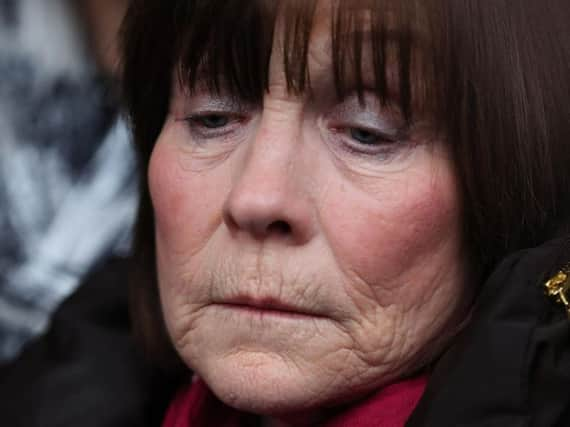I knew him for 20 years, but didn't know him - Alan Hawe's mother-in-law


The grieving mother's connection to Alan Hawe went back two decades but it gave her little or no insight into the man who would murder her daughter and three grandchildren.
"I knew him for 20 years. I didn't know him, but I did know him," she told an inquest into their deaths.
Advertisement
Hide AdAdvertisement
Hide AdMr Hawe, vice principal in Castlerahan National School in Ballyjamesduff, Co Cavan, had hinted at unhappiness on the eve of the murder-suicide when he told Mrs Coll he was not looking forward to going back to school.
But the inquest was told that they shared coffee and biscuits that night and on the outside everything seemed normal.
After a two day hearing in Cavan courthouse, which at times left Mrs Coll and her surviving daughter Jacqueline Connolly shaking with grief, the doting mother and grandmother said Mr Hawe had secrets.
The 39-year-old had been to marriage guidance counselling, the inquest heard.
Advertisement
Hide AdAdvertisement
Hide AdThere was also a conflict with a colleague in work and he had been due to attend a meeting in school on the morning his family was found dead.
Mr Hawe's GP, Dr Paula McKevitt, revealed that he had been in her surgery for the last time on June 21 2016 complaining of being rundown, suffering insomnia and having a fungal infection in a big toe nail.
She said he told her he had been using Domestos bleach to clean his feet.
He was prescribed sleeping pills, an anti-fungal cream and advised of the dangers of using bleach on sensitive skin.
Advertisement
Hide AdAdvertisement
Hide AdDavid McConnell, a psychotherapist who Mr Hawe saw privately for 10 counselling sessions from March to June 2016, shone a little light on what Mr Hawe wanted out of his marriage.
"His goal for the counselling was for family life to get back to what it was," he said.
"It was clear he placed a high value on family life, on being a good husband and a good father."
During the inquest Mrs Coll questioned why she or her family were not interviewed by a leading psychiatrist who had been asked to prepare a report on Mr Hawe for the coroner.
Advertisement
Hide AdAdvertisement
Hide AdProfessor Harry Kennedy, Clinical Director of the Central Mental Hospital in Dublin, told the hearing that the reports from the counselling sessions suggested Mr Hawe was troubled.
His conclusion was that he had depression for many years and that it had progressed to a more severe depressive episode.
He said medical reports suggested he had been suffering anxiety about his physical health since at least 2008.
"Alan Hawe had been troubled by some unfounded somatic anxieties, basically anxieties without much basis in reality," Prof Kennedy said.
Advertisement
Hide AdAdvertisement
Hide AdThe psychiatrist accepted that Mr Hawe was a "worried well", visiting his doctor for reassurance.
"To a notable extent, to the extent that he was going to his GP," the psychiatrist said.
And he also attempted to explain the impact of Mr Hawe's deteriorating mental state and how he would be affected by "delusional beliefs".
Prof Kennedy said it was "a belief that some catastrophe, some terrible event, is happening from which there could be no recovery".
Advertisement
Hide AdAdvertisement
Hide Ad"In general terms in a depressive illness and severe depressive illness people often seize on some item that's going on in their lives, that then becomes distorted and blown out of proportion as a result of the illness," the professor said.
But Mrs Coll twice questioned why her opinion of Mr Hawe was not sought.
She asked: "Do you ever - when you are doing summaries based on evidence - do you ever consider interviewing the family of the people who were murdered or the family of the murderer?"
Coroner Dr Mary Flanagan said the professor was constrained in what he could do while compiling his report.
Advertisement
Hide AdAdvertisement
Hide AdMrs Coll continued her line: "Seeing that you never met Alan Hawe, Clodagh or his family, did you ever consider speaking to the family in relation to him and how he was?"
Prof Kennedy, who offered condolences directly to the family, said: "There's a very important distinction between the role of a clinician seeing the family and helping the family and the role I'm asked to fulfil here to assist the court."
Mrs Connolly also told the Professor that she had questions but added: "They are not within the limitations of the (Coroner's) Act."
Advertisement
Hide AdAdvertisement
Hide Ad